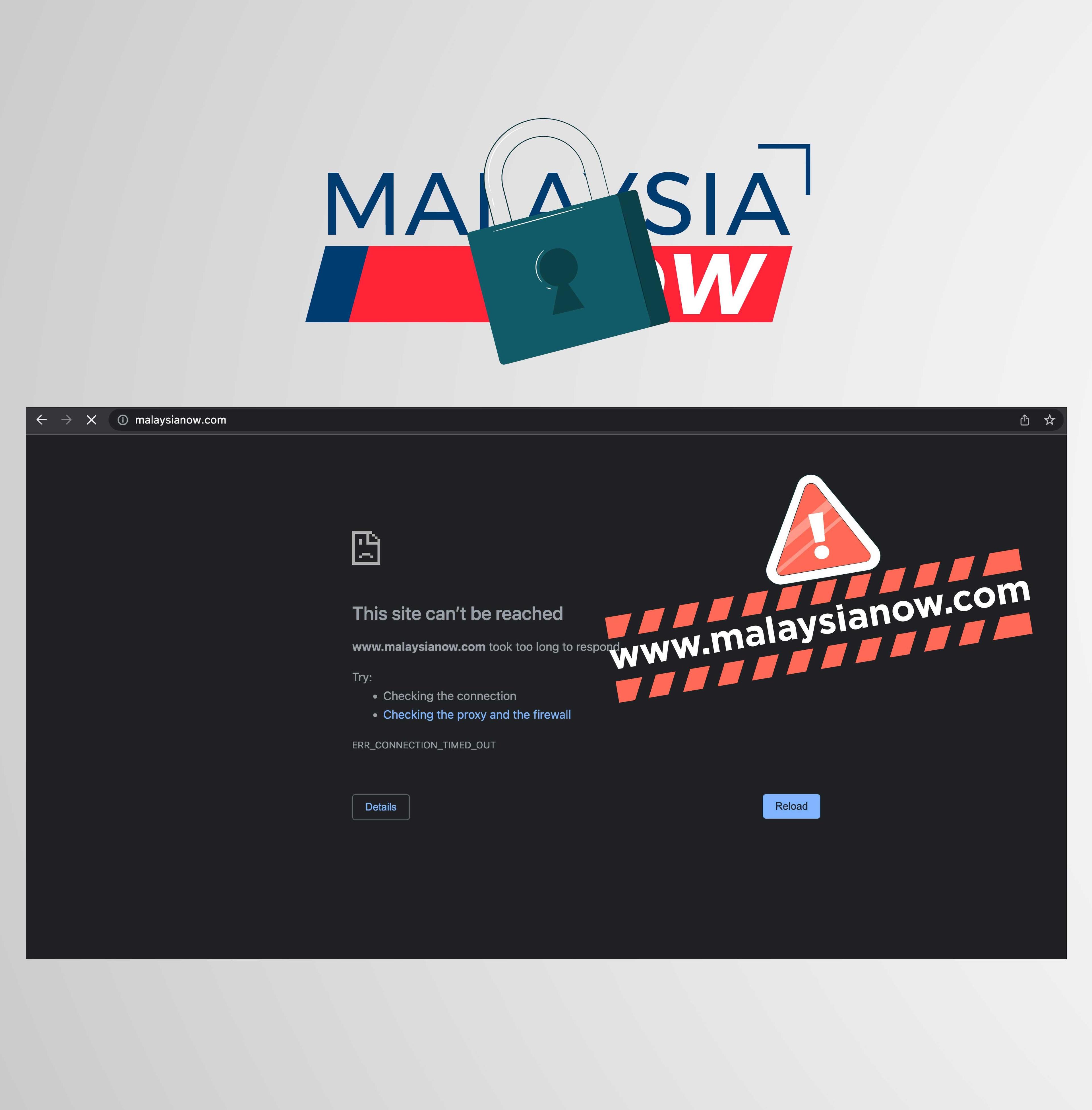Explaining the block of MalaysiaNow in Malaysia
How blocking is done in Malaysia and how it can be tracked using technical evidence available as open data on the OONI platform.
Just In
Recently, there were highlights of the blocking of websites such as MalaysiaNow and Malaysia-Today.
In the iMAP State of Internet Censorship Country Report 2022 – Malaysia, more than 70 websites from various categories of political criticism, news and media, human rights issues, pornography, gambling and others were found blocked in Malaysia based on OONI data in the first half of 2022.
The blocking of websites in Malaysia is ordered by the Malaysian Communications and Multimedia Commission (MCMC) to the internet service providers (ISPs), who will then configure redirection of the DNS to MCMC's IP address: 175.139.142.25.
In layman's terms, DNS is like the phone book of the internet, where each URL or link matches the IP address of the website. When DNS tampering is done, the "phone book" is tampered with so that the URL does not reach the website's IP address and, in this case, reaches an inaccessible IP address instead.
In the past, MCMC would show block notices (see here).
In recent years, these block notices are no longer shown, and possible blocking is suspected when many Malaysia-based users are unable to access a popular website. A potential block of a website may be more obvious when the website can only be accessed on certain networks, as the blocking done by the ISP is not uniform and inconsistent, even by the address used.
For example, when MalaysiaNow was found blocked on June 27-29, www.malaysianow.com was only known to be blocked by four ISPs: Celcom (AS10030), TM (AS4788), Digi (AS4818) and Maxis (AS9534) based on data on Open Observatory Network Interference (OONI), but was accessible on TIME (AS9930), U Mobile (AS38466) and YTL (AS45960) (see more here).
But malaysianow.com was found blocked on TIME (AS9930) and U Mobile (AS38466) instead.
On the other hand, it seems that AS45410 (Allo Technology) and YTL (AS45960) did not block this website during the three-day period.
On the second day of blocking, it was also shown that the ISPs had begun to unblock the website. U Mobile (AS38466) and Digi (AS4818) were still found to be blocking the website until June 30 and July 4, respectively. This also shows that the lifting of blocks is inconsistently done by ISPs.
It is crucial that these instances of censorship be tracked, not only through complaints from users.
OONI provides a platform for users to collect this data through the OONI Probe mobile and desktop apps. When enough data is collected, it can be confirmed that the blocking was done from one specific time to another, as well as by a specific ISP. As OONI also tracks the "blocking fingerprint", whereby these fingerprints confirm censorship by the government or the ISPs, the data is thus more reliable evidence.
When critical websites like news portals are blocked and then unblocked, some internet users may continue to experience blocking due to delays or misconfiguration. In these cases, technical data evidence is important to highlight the blocking of websites to ISPs and the Malaysian government to hold them accountable, rather than having a few complaints from the users through screenshots.
It is recommended that the Malaysian government, through MCMC, be more transparent in these cases of internet censorship. MCMC should actively publish block notices or block lists, as well as be transparent about the SOPs for making orders for blocking websites. This includes holding the ISPs accountable when implementing these orders, whether it is blocking or unblocking the websites.
For more details and graphs, please click here.
Sinar Project is part of the Internet Monitoring Action Project (iMAP) that monitors restrictions to internet freedom in Malaysia, Myanmar, Cambodia, Hong Kong, India, Indonesia, Philippines, Thailand, Vietnam and Timor Leste.
The views expressed in this article are those of the author(s) and do not necessarily reflect the position of MalaysiaNow.
Subscribe to our newsletter
To be updated with all the latest news and analyses daily.
